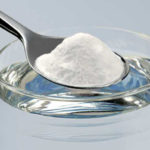Headaches are a common occurrence and can vary in intensity and nature. Patients may experience throbbing, sharp, or piercing pain in their heads. The pain can develop gradually or suddenly and last from a few minutes to a few hours. In addition to rest and sleep, there are several other methods to quickly alleviate this condition.
Apply a Cold Compress
Applying a cold compress to the head and neck can help alleviate migraine and tension headaches. To avoid skin damage, wrap ice or a cold pack in a cloth before applying it for no longer than 15-20 minutes at a time.
Use Heat
Applying heat to the head, neck, hands, and feet can reduce tension headaches, migraines, and cluster headaches. Use a low-temperature heating pad, a hot water bottle, a warm compress, or a hot towel. Taking a hot bath or steaming may also soothe the pain.
Drink a Large Glass of Water
According to the National Headache Foundation in America, dehydration is a common trigger for headaches. When a headache strikes, drinking a large glass of water can help ease the discomfort.
Relax
Practicing meditation, deep breathing, and visualizing peaceful images can calm the mind and distract from the pain. Various relaxation techniques can benefit those suffering from muscle contraction headaches.

Rest and relaxation can help ease headaches. Photo: Freepik
Massage
Massage can reduce muscle tension and headaches. Gently massage your temples, scalp, neck, and shoulders with your fingertips or try neck stretching exercises. These techniques help relax the muscles and ease the pain.
Consume Caffeine
A small amount of caffeine found in tea or coffee may improve migraines or enhance the pain-relieving effects of over-the-counter medications. However, it is important not to overdo it. Excessive caffeine consumption can worsen headaches.
Apply Peppermint Oil
Applying a small amount of peppermint oil to your temples or forehead can help alleviate headaches. As peppermint oil can irritate the skin, dilute it and test it on a small area of your arm before applying it to a larger area.
Relax in a Dark Room
Sit or lie down in a dark, quiet room, close your eyes, and relax to calm your mind.
To prevent headaches, it is important to get enough sleep, maintain a healthy diet, stay hydrated, and manage stress. Avoid smoking, limit alcohol consumption, and exercise regularly.
If you experience medication-overuse headaches, typically occurring after taking medication for 15 or more days a month, consult a doctor. Medication-overuse headaches can become chronic if the overuse continues for three months or more.
Mai Cat (According to Everyday Health)





































